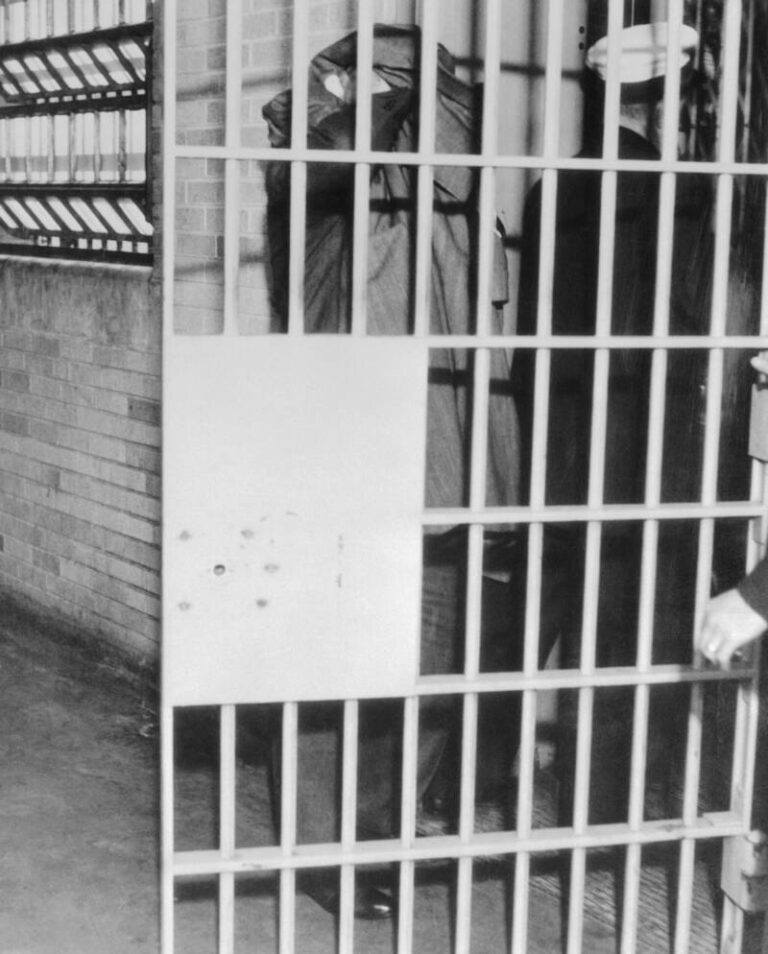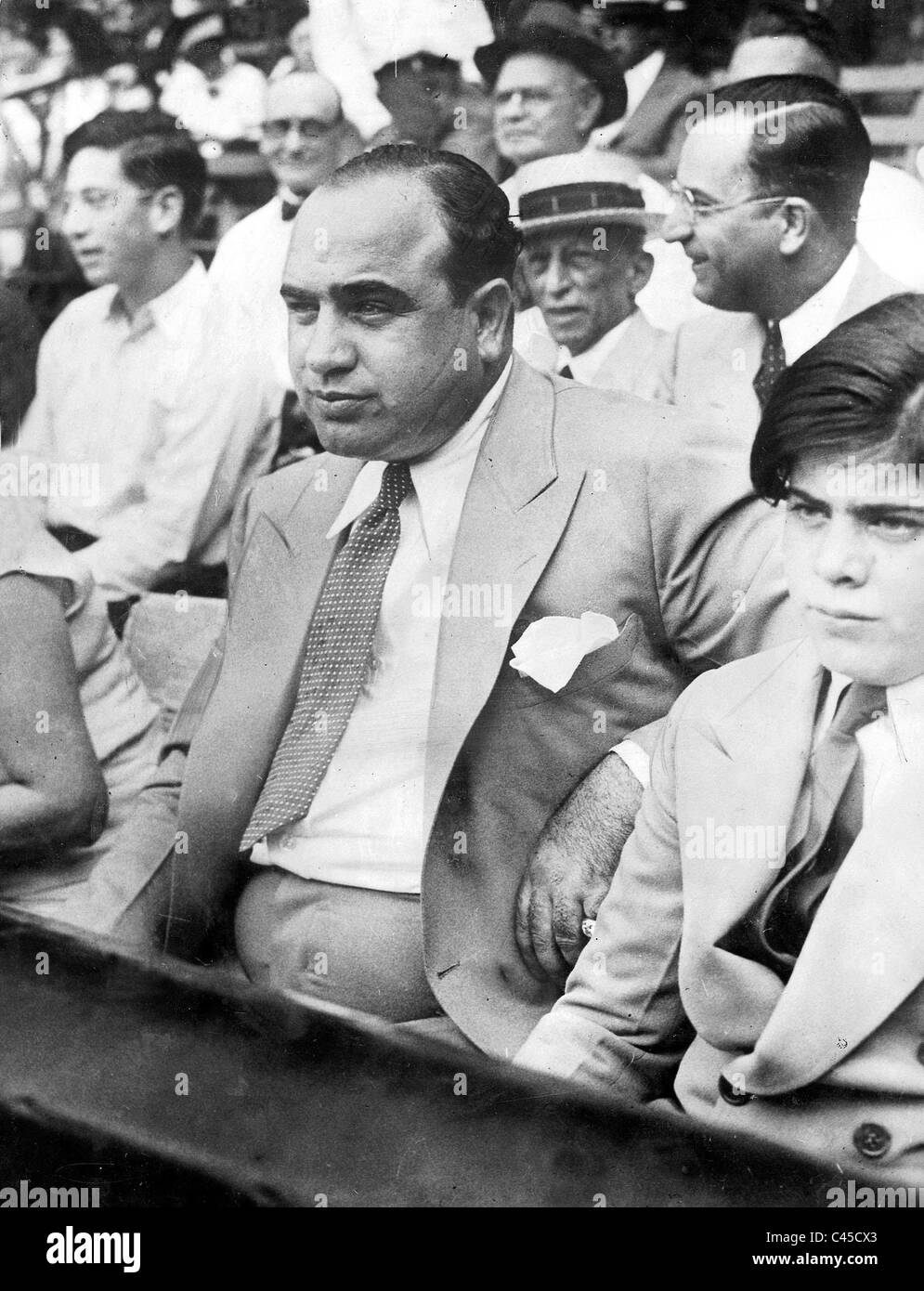Who was Albert Francis Capone, a man overshadowed by a notorious legacy, and what became of him? The life of "Sonny" Capone, the son of the infamous Al Capone, was a complex journey of attempting to escape a shadow, marked by both tragedy and a determined pursuit of anonymity.
Born into a world of organized crime, Albert Francis Capone, known as "Sonny," was the sole heir to the Capone name, a moniker synonymous with bootlegging, violence, and the excesses of the Prohibition era. His father, Alphonse "Al" Capone, ruled the Chicago Outfit with an iron fist, building a criminal empire that captured headlines and defined an era. However, Sonny's life was not destined to mirror his father's. Instead, he sought a different path, one that led away from the glare of publicity and the specter of his father's deeds.
Born on December 4, 1918, in Brooklyn, New York, Albert's arrival was shrouded in the circumstances of his parents' lives. His father, Al Capone, was already a rising figure in the criminal underworld. His mother, Mae Coughlin, was a woman who would have to navigate the turbulent life alongside the infamous gangster. The marriage itself was a significant event, taking place on December 30, 1918, just weeks after Sonny's birth. While the details surrounding their courtship and wedding are mired in speculation and rumors, the union produced one son, Albert Francis Capone.
From the outset, Albert's life was marked by challenges. He was born with congenital syphilis, a disease his father contracted before the marriage. This medical condition would have profound and lasting effects on his health, including requiring risky brain surgery to address a serious mastoid infection at the age of seven. The surgery, though successful in saving his life, left him partially deaf. This was a constant reminder of the impact of his father's choices.
| Personal Information | Details |
|---|---|
| Full Name | Albert Francis Capone, also known as Albert Francis Brown, "Sonny" |
| Date of Birth | December 4, 1918 |
| Place of Birth | Brooklyn, New York |
| Date of Death | July 2004 |
| Place of Death | Auburn Lake Trails, California |
| Parents | Al Capone and Mae Josephine Coughlin |
| Spouse | Diana Casey |
| Children | Veronica, Teresa, Barbara, and Patricia (Diane) |
| Noted for | Son of Al Capone, changed his name to distance himself from his father's legacy. |
| Legal Name Change | 1966: Albert Francis Brown |
| Reference | Find a Grave |
Sonny's attempt to shed his past was a gradual process, culminating in a pivotal moment in 1966. It was then that he legally changed his name from Albert Francis Capone to Albert Francis Brown. This decisive act symbolized his desire to distance himself from the Capone name, which carried the weight of notoriety, the risks and consequences of his father's criminal actions, and the persistent public scrutiny that came with it. It was a determined effort to forge his own identity, free from the shadow of his father's reputation. The name change was not just a legal formality, it was a statement of intent: a clear break from the past and a step towards a more anonymous future.
His choice to live a quiet life in California offered a sense of peace. The move was a conscious attempt to create distance from the criminal underworld in which his father thrived. While details about his personal and professional life remain scarce, it is understood that he valued privacy and the opportunity to live away from the media's prying eyes. He appears to have carefully curated a life of relative obscurity, far removed from the lavish lifestyle and the brutal realities of his fathers world.
- Unraveling The Mystery Is Dorien Wilson Gay
- Nia Malika Hendersons Wife A Look Into The Life Of The Journalists Partner
The events of the 1960s marked a crucial turning point in Sonny's life. While he was not involved in any major criminal enterprises, he did face minor legal troubles. In 1965, he was reportedly convicted for stealing a modest sum of aspirin and batteries. Although seemingly insignificant in comparison to the scale of his fathers crimes, this incident highlighted the reality of his life. Further, it showed how the Capone name, even if only involved in petty acts, could never truly be erased. This event served as another motivator to further detach himself from his father's world. Not long after, he took the most decisive step by legally changing his name in 1966.
The secrecy that shrouded Sonnys life extended to his final days. When he passed away in July 2004, at the age of 85, in the small Californian town of Auburn Lake Trails, he carried a secret. He was born Albert Francis Capone Jr. This fact alone speaks volumes about the complex web of identity, legacy, and the human yearning for personal freedom. The legacy of Al Capone, however, continued to attract attention, especially through media interpretations. The Josh Trank film, "Capone," focused on the final years of the notorious gangster's life. While such works offer a glimpse into the world surrounding Al Capone, they often present a limited view of those closest to him.
The mysteries surrounding Sonny's life and the claims that he was not the only child of Al Capone persist. Some claim that his mother, Mae Capone, did not give birth to him, suggesting he was an illegitimate child. Others claimed that she gave birth to him weeks before her wedding. Despite these claims, the official record confirms that Albert Francis Capone was indeed the only known son of Al Capone and Mae Coughlin. The marriage itself was arranged shortly after Sonny's birth. These are the only official truths in a tale of mystery and intrigue. Whatever the circumstances of his birth, his life was forever intertwined with the Capone legacy, a legacy that brought him both privilege and burden.
The relationship between Al and Mae Capone, and its impact on Sonny, remains a subject of conjecture. While the marriage was, in certain ways, a union born out of necessity, there are accounts of a happy relationship. They made rare public appearances, one of which was at their son's wedding. The couple made an appearance at St. Patrick's Church in Miami Beach in December. Mae, in turn, was known to be a significant figure in Al Capone's life, who ultimately suffered as a result of his transgressions, particularly when he transmitted syphilis to her.
The name change was a key step in Sonny's life, yet the ties to his past were inescapable. He found himself constantly being associated with the name Capone, which has been the source of both trouble and benefit. Even declassified FBI documents from 1968 revealed that he was a target. This was a constant reminder of his lineage and of the scrutiny that came with it.
The story of Albert Francis Capone is, at its core, a human one. He was born into a world of crime, but he sought a different path. He struggled with the weight of his father's legacy, health problems, and a desire for anonymity. His life embodies the desire for self-determination and the difficulty of escaping the past. In his legal name change and choice of lifestyle, he attempted to create a life of his own, separate from the notorious Capone name. While he may not have fully succeeded, his story offers a unique look into the complexities of family, identity, and the enduring power of a famous name.
Despite all of the evidence and factual information, the circumstances of Sonny's birth, his health challenges, and the choices he made, create a complex story that highlights the desire for a quiet, independent life against all odds. In this attempt, he lived a life that, while private, remains a powerful statement about the choices we make to shape our destinies.


